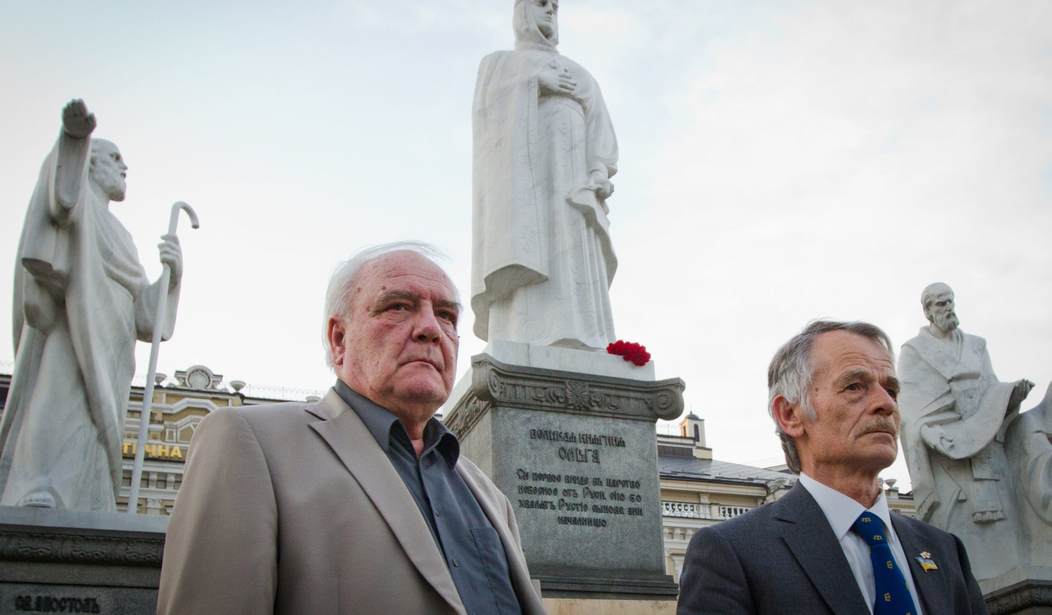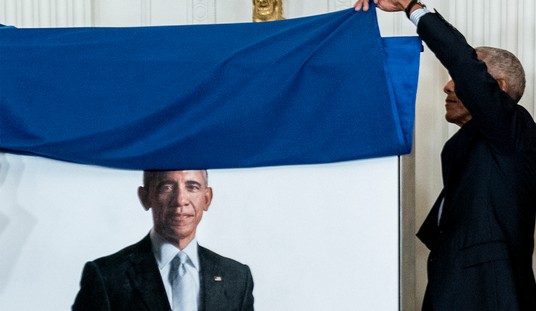It’s the United States of America, and the year is 2019, and a hard-bitten old Commie named Bernie Sanders is, for the second time in a row, a popular candidate for the presidency. Meanwhile, the youngest and most high-profile new member of Congress is a staggeringly callow woman whose fatuously utopian rhetoric has made her a media darling. At the same time, the Democratic Party center itself is quickly lurching leftward, with once sensible politicians now spouting foolish and dangerous socialist bromides.
Some observers profess astonishment at these developments. In fact there’s no reason whatsoever for surprise. For one thing, as the legendary Soviet dissident Vladimir Bukovsky laments in his book Judgment in Moscow (Ninth of November Press, $24.99 hardcover) — which appeared in French in 1995 and in Russian and German the year after, but is only now being published in English for the first time — the fall of the USSR was not followed by the kind of conspicuous moral reckoning and housecleaning that went on in Germany after Hitler’s defeat. There was no post-Soviet equivalent of the Nuremberg trials. Politburo and KGB members like Vladimir Putin, instead of being imprisoned or banished or fleeing to the Brazilian rainforest or the mountains of Bolivia, simply altered their public profiles and retained or resumed power in the new, purportedly post-Communist Russia.
As Bukovsky puts it: “To bring to justice those who took part in Nazi atrocities is a sacred task, the duty of one and all. But God forbid that you should so much as point a finger at a communist (let alone his fellow traveler); that is improper, a ‘witch hunt.’” How to convince the Western multitudes that Communism is horrible when its avatars were let off scot-free?
Nor has education done the job. Since World War II, Western schools and universities have plumbed the dark heart of Nazism while leaving students in the dark about Communism’s evils. For years, the most widely assigned American history text in the U.S. has been A People’s History of the United States, a piece of crude agitprop written by a devout Communist, Howard Zinn. During the Cold War, American journalists, “intellectuals,” Democratic politicians, and other cultural-elite types served as de facto Soviet apologists, raising moral equivalence to a high art and emphasizing the perils of nuclear war while whitewashing totalitarianism; even in the decades since the fall of the Iron Curtain, many news media have continued to paint a rosy picture of the Red Menace. (Throughout 2017, the New York Times commemorated the hundredth anniversary of the Russian Revolution by running articles that waxed nostalgic about American Stalinism and claimed sex was better under Communism.)
Hollywood is part of this, too. Filmmakers who would never make a hero of a Nazi have routinely celebrated Communists, one of the most recent examples being the 2015 biopic Trumbo. The Hollywood Ten were all Stalinist tools, but the innumerable films about the Blacklist have invariably depicted them as free-speech martyrs. The most renowned Cold War-era American film to touch on Soviet-U.S. relations was probably the 1983 TV movie The Day After, which depicted the consequences of a nuclear exchange and implicitly argued for unilateral denuclearization.
No wonder Americans who know about the Holocaust have never heard of the Gulag — and are thus prepared, in alarming numbers, to cheer the likes of Sanders and Ocasio-Cortez.
Bukovsky’s book might have helped awaken Americans to the reality of Communism. But, as noted, it’s only just now coming out in English. Back in the 1990s it was contracted to Random House, but that publisher’s longtime editorial director, Jason Epstein, according to Bukovsky, tried “to force me to rewrite the whole book from the liberal left political perspective.” In particular, Epstein disapproved of his criticism of various American individuals and organizations that, in Bukovsky’s view, had been useful idiots for the Kremlin.
Among them was the movie director Francis Ford Coppola, who had acted as a liaison between President Carter and the Soviets in discussions of a proposed joint film project about Soviet life. Then there were the honchos at ABC-TV who, in 1966, inked a deal with the Kremlin to co-produce a documentary about a working-class Russian family that would “illustrate the achievements of the Soviet government over the past 50 years.” When Epstein rejected the idea that such a program could necessarily be described as Soviet propaganda, Bukovsky retorted: “How would you feel, Mr. Epstein, about a film on ‘German Woman’ made with the approval of Dr. Goebbels in 1938?” Ultimately Epstein cancelled Bukovsky’s book contract, saying, “I simply can’t publish a book that accuses Americans like Cyrus Vance [Carter’s Secretary of State] and Francis Ford Coppola of unpatriotic — or even treacherous — behavior.”
Reading this passage of Bukovsky’s book, I recalled that Epstein was running Random House back in 1971 when it published David Halberstam’s book Ho, a shameless hagiography that depicted Ho Chi Minh, a murderous monster, as a humanitarian hero. It was disgraceful for Epstein to have published such a contemptible work; it was doubly disgraceful for him to have gone on, years later, to break his contract with Bukovsky because the latter told the truth about Communism.
But Epstein wasn’t alone. Bukovsky offers a long list of j’accuses: the New York Times, Granada TV (England), Reuters, the BBC, and London Weekend Television were among the Western media outlets that made shabby propaganda deals with the Kremlin. Bukovsky fingers the 1984 movie The Killing Fields for dancing around the fact that it was Communists who massacred all those people in Cambodia. He faults director David Lean for turning Doctor Zhivago, a profound indictment of Communism, into “a sloppy tearjerker.”
Bukovsky reminds us that, back in the 1980s, talk-show host Phil Donahue’s frequent on-camera teaming with genial Soviet “journalist” Vladimir Pozner (who spoke perfect, unaccented American English) served to put a human face on a monstrous system. Bukovsky calls out President Carter for his betrayal of dissident Natan Sharansky, Nixon for introducing détente, Reagan and Thatcher for being too credulous in regard to Gorbachev’s “reforms,” and a raft of American “Sovietologists” who, in effect, functioned as apologists for the Soviet system, if only because this guaranteed them continued access to the USSR, without which they wouldn’t have been considered experts.
In fact Bukovsky doesn’t have very much good to say about any Americans, whom he views as chronically naïve, not to mention conformist, materialistic, and lacking in any sense of history or anything worth describing as a culture. “I did not like America,” he tells us,” from the very first moment I found myself there.” Speaking at an American university in 1977, he looked out at the audience and was appalled by “all those eternally shining eyes, burning with enthusiasm,” which made him “realize that I would never be able to explain anything to these people.” He finds the very idea of the “pursuit of happiness” idiotic. He mocks “the American dream” and the idea that America is “the land of the free.” No, Americans may not be confined to gulags, but in his view we’re “enslaved” by passing crazes and by the “pursuit of success.” He also thinks we’re pragmatic to the point of having no regard for principle. If we never got sucked in by Communism, he suggests, it’s because Communism is too “complex” and “conceptual” to captivate our mediocre minds. In short, he makes the later Solzhenitsyn — Solzhenitsyn, that is, after he’d soured on America — sound like George M. Cohan.
My first reaction to these snotty remarks about America was to utter a few choice expletives. After reflecting upon them, however, I recognized that it only makes sense for someone who’s lived under tyranny in his own homeland to react in such a way to the spectacle of a free people who’ve always been free and many of whom therefore, yes, take their freedom for granted. I do think Bukovsky’s quarrel here is mostly with the leftist American “intellectuals” with whom he appears to have spent too much time after being deported from the USSR in 1976. One can always hope, too, that his view of America has modified since he wrote this book. Now 76, he’s currently associated with the Washington-based Cato Institute and the New York-based Human Rights Foundation. Let’s hope that has helped.
Bukovsky’s book consists largely of items from the Soviet archives. In transcripts of Politburo meetings, we see Soviet leaders discussing what to do about Solzhenitsyn or Sakharov. We encounter definitive proof that the multitudinous Cold War-era “friendship associations,” “peace conferences,” and the like were (as American anti-Communists charged at the time) nothing but cynical Kremlin efforts to manipulate Western opinion. We read about clandestine contacts between Moscow and pro-Soviet Western politicians, about under-the-table payments to Communists in the West, and about the commitment of dissidents to mental hospitals. Some of these materials are sensational; but, as Bukovsky laments, the Western media lost interest in them very quickly after the Iron Curtain fell.
I hate to admit it, but after reaching a certain point in Bukovsky’s book I lost interest, too. Nobody has to prove to me that Communism is evil. I’ve known that since I was a child. As for those ignorant Westerners who do need to be convinced of this fact, they’d frankly be better off reading Doctor Zhivago or Vasily Grossman’s novel Life and Fate or something by Solzhenitsyn. Important though it is, Bukovsky’s book consists very largely of archival materials that make for less than scintillating reading and that, in most cases, could have been drastically edited down and/or paraphrased. Bukovsky himself, meanwhile, too often comes off as reflexively dyspeptic, indeed downright unpleasant — ready to chastise everybody except himself.
No, it’s not fair to expect your heroes to be perfect silver-screen icons like, oh, Gregory Peck’s Atticus Finch in To Kill a Mockingbird. We’re talking about a man whom the Soviets punished by committing him for years at a time to mental hospitals, in addition to putting him in prison. He’s earned his rage — even his rage against free Americans. Still, I wish he’d taken the trouble, as any good teacher would, to organize his materials in such a way as to best engage the minds of Western readers who so desperately need to learn from his experience. The problem, alas, is that even if you’re a world-class icon of courage in the face of tyranny, you can’t be a good teacher if you have unbounded contempt for your students.









Join the conversation as a VIP Member